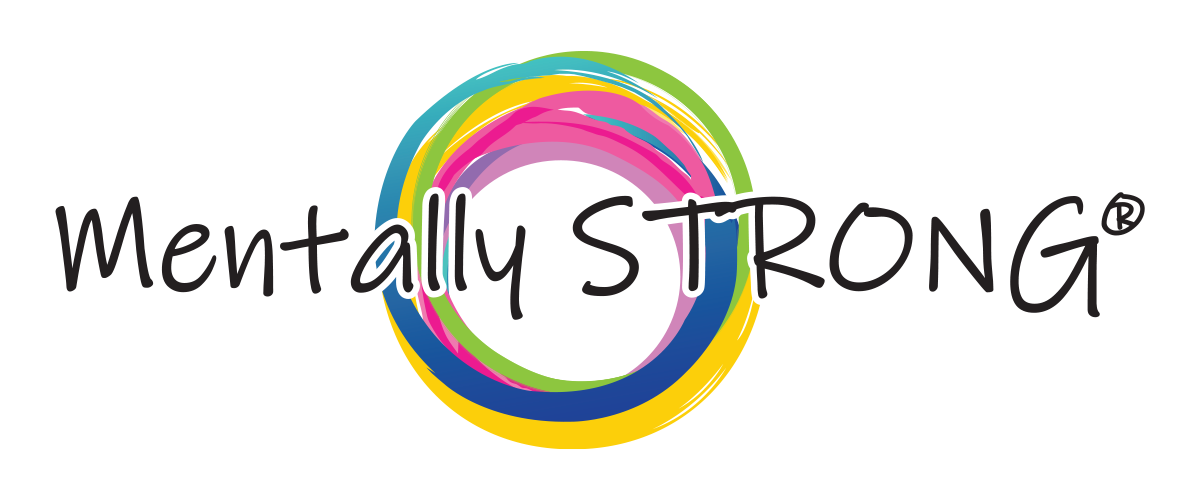Introduction
Dealing with social anxiety is tough. It can make everyday tasks feel overwhelming, especially when it comes to finding a job that fits your needs. But the good news is that there are career paths that can accommodate your anxiety while allowing you to thrive. You don’t have to settle for a job that makes you uncomfortable or stressed. Instead, you can find work that aligns with your strengths and gives you a sense of fulfillment.
Understanding Social Anxiety in the Workplace

Social anxiety can manifest in different ways, and it often becomes more pronounced in the workplace. The fear of scrutiny, being judged, or facing social situations can make it difficult to perform tasks that others might find routine. It’s not just about being shy or introverted; it’s a deeper fear that can sometimes be paralyzing.
You might find yourself avoiding tasks that involve social interactions, even if it’s something as simple as a team meeting or a phone call. This can limit your career growth and make you feel stuck. But it’s important to remember that you’re not alone, and there are ways to work through this anxiety.
The Importance of Finding the Right Job Fit
Choosing a job that fits your personality and accommodates your anxiety is crucial. It’s not just about avoiding stress; it’s about finding a role that allows you to contribute meaningfully without overwhelming you. When you’re in a job that suits you, it can help build your confidence and reduce your anxiety over time.
It’s okay to seek out roles that align with your strengths and comfort levels. You don’t have to force yourself into a high-pressure environment if it doesn’t feel right for you. Instead, focus on finding a job where you can excel without compromising your mental health.
Addressing the Challenges of Social Anxiety Through Career Choices
Social anxiety comes with challenges that can feel daunting, but they don’t have to hold you back. You can create a work environment that supports your mental health by choosing a career that will minimize stress for you and help you build on your strengths. It’s about finding balance and understanding what triggers your anxiety so you can avoid or manage those situations.
Understanding the Impact of Social Anxiety on Personal Vision
As you navigate the challenges of social anxiety, you need to consider how your career choices align with your personal vision—the deeper goals and aspirations that define who you are and what you seek in life.
Your personal vision is where you really want to be, not just a small goal or fleeting resolution. It’s about identifying who you truly are and what you are called to do. When you think about your life’s work, it’s not merely about a job or a career—it’s about your purpose. This purpose is what fuels your passion and gives meaning to your daily life.
Take a moment to reflect on what truly matters to you. For some, it might be helping others, creating something beautiful, or finding peace in the everyday moments. Whatever it is, your job should align with this vision. Remember, it’s not about fitting yourself into a job that exacerbates your anxiety or makes you feel small—it’s about finding work that supports your goals and lets you grow.
Social anxiety might make you feel like you need to compromise your vision, but that’s not the case. By acknowledging your anxiety and understanding how it influences your choices, you can begin to seek out roles that not only accommodate your challenges but also empower you to move closer to your personal vision. This approach isn’t just about managing anxiety—it’s about thriving in spite of it.
Characteristics of Jobs for People With Social Anxiety
When looking for a job that suits your social anxiety, it’s important to focus on roles that align with your personal vision and make you feel safe. These jobs should allow you to work independently, giving you space to manage your tasks without constant interaction. Remember, it’s not just about finding a job; it’s about finding work that supports who you truly are and where you want to go in life. You deserve a career that not only respects your need for a calm environment but also helps you grow confidently at your own pace.
Low Social Interaction Roles
If social interactions cause you significant stress, consider jobs that involve minimal contact with others. These roles allow you to focus on your work without the constant pressure of socializing, making it easier to manage your anxiety.
Roles That Align with Personal Vision and Provide a Sense of Control
When you’re in a role that aligns with your personal goals and gives you a sense of control, it can significantly reduce your anxiety. These jobs allow you to work independently, set your own pace, and feel a sense of accomplishment.
Flexible Work Environments
Flexibility is key when managing social anxiety. Jobs that offer remote work, flexible hours, or the ability to set your own schedule can help you create a work environment that feels safe and manageable.
Independent and Creative Roles
Creative roles often allow for more independence, letting you focus on your craft rather than social interactions. Whether it’s writing, graphic design, or any other creative field, these jobs can provide a fulfilling outlet without the stress of constant social engagement.
Roles That Allow for Controlled Exposure to Social Situations
Controlled exposure to social situations can help you gradually overcome your anxiety. Jobs that offer occasional social interactions, rather than constant pressure, allow you to build your confidence at your own pace.
9 Jobs for People with Social Anxiety

Choosing a job that accommodates your social anxiety doesn’t mean settling for less. There are many roles where you can thrive without being overwhelmed by social demands. Whether it’s working with data, animals, or in creative fields, these jobs allow you to contribute meaningfully while managing your anxiety. Each of these jobs offers a unique way to blend your skills with the level of social interaction that feels right for you, helping you build a career that’s both fulfilling and aligned with your strengths.
Health or Medical Technician
As a health or medical technician, you can work in a structured environment with clear tasks and minimal social interaction. The focus is on patient care and technical skills, which allows you to contribute without the stress of constant socializing.
Gardener or Landscaper
Working as a gardener or landscaper provides a peaceful, outdoor environment where you can work independently. The nature of the job allows for solitude and minimal social interaction, making it an ideal choice for those with social anxiety.
Information Technology Worker
In IT roles, much of the work is done behind the scenes, allowing you to focus on problem-solving and technical tasks without frequent social interactions. Whether you’re working on software development, network management, or cybersecurity, these roles offer a level of independence that can be comforting.
Writer or Editor
Writing and editing are careers that allow you to work independently and often remotely. You can focus on your craft without the pressure of constant social interactions, making it a great choice if you find social situations challenging.
Animal Care Worker
Working with animals can be incredibly rewarding and therapeutic. As an animal care worker, your interactions are primarily with animals, and while there is some social interaction, it’s often minimal and manageable.
Accountant
Accounting is a field that allows you to work with numbers and data, often in a quiet and controlled environment. You can manage your tasks with minimal social interaction, making it a suitable option for those with social anxiety.
Tradesperson
As a tradesperson, you can focus on hands-on work, whether it’s carpentry, plumbing, or electrical work. These roles often involve working independently or in small teams, reducing the need for constant social interactions.
Computer Programmer
Programming is a job that requires focus and attention to detail, often allowing you to work independently. Whether you’re developing software, apps, or websites, the nature of this work often involves long periods of concentration without the need for frequent social interaction.
Entrepreneur or Business Owner
Being your own boss can give you the control and flexibility to create a work environment that suits your needs. As an entrepreneur, you can set the terms of your work, choose your level of social interaction, and build a business that aligns with your personal vision.
Overcoming Challenges in the Workplace
Facing challenges at work when you have social anxiety can be daunting, but it’s important to approach these situations with compassion for yourself. Overcoming these challenges starts with acknowledging your feelings and gradually exposing yourself to situations that help you grow, without pushing too far too fast. It’s okay to take small steps, and it’s okay to seek out environments and accommodations that make you feel supported. Remember, this journey is about progress, not perfection.
Controlled Exposure to Social Interactions
Sometimes, gradually exposing yourself to social situations in a controlled manner can help reduce your anxiety over time. Start small, with tasks that involve minimal interaction, and slowly build up your confidence. This approach allows you to engage with social situations at your own pace, reducing the pressure to perform and helping you to gain familiarity with these scenarios. By incrementally increasing your exposure, you give yourself the space to adapt and grow, making each subsequent step less daunting than the last.
Seeking Accommodations and Support
Don’t be afraid to seek accommodations that can help you manage your social anxiety in the workplace. Whether it’s requesting a quieter workspace, flexible hours, or additional support, these accommodations can make a significant difference in your ability to perform your job. It’s important to remember that seeking accommodations is not a sign of weakness, but rather a proactive step toward creating an environment where you can thrive. By advocating for your needs, you empower yourself to succeed while maintaining your well-being.
The Role of Therapy in Managing Social Anxiety at Work
As a psychiatric nurse practitioner with over 20 years of experience, I’ve seen how therapy can be a transformative tool in managing social anxiety at work. At the Mentally STRONG Clinic, we use an approach that reflects my experiences and insights, focusing not just on managing symptoms but on empowering you to navigate social situations with more ease. The Mentally STRONG Method blends therapeutic strategies with practical tools, allowing you to work through the challenges of social anxiety at your own pace. It’s about finding the support that fits your journey, helping you grow both personally and professionally.
Reframing and Rewiring Thought Patterns for Career Growth
Learning to reframe and rewire your thought patterns is crucial in managing social anxiety. By challenging negative thoughts and focusing on your strengths, you can create a more positive and empowering mindset that supports your career growth. It’s about recognizing the patterns of thinking that hold you back—those thoughts that tell you you’re not capable, or that social situations are too overwhelming—and consciously choosing to view them differently. Instead of dwelling on what could go wrong, start focusing on what you can control and how you can succeed.
Cognitive Behavioral Therapy (CBT) is a powerful tool that helps you reframe and rewire thought patterns that may be holding you back. The Mentally STRONG Method builds on this foundation, offering a unique approach that integrates cognitive restructuring with personal growth strategies, empowering you to take control of your mental health and career development.
Long-Term Career Development and Social Anxiety

As you continue to build your career, it’s essential to keep your personal vision at the forefront. Your career growth should reflect not just your professional goals, but also your need for a balanced life that honors your mental health. With time, you may find yourself ready to take on new challenges or more social roles. This process is about evolving at your own pace, ensuring that each step you take feels right for you. It’s not about rushing to fit into traditional expectations but creating a career path that feels authentic and manageable.
Building Confidence and Skills Over Time
It’s important to remember that building confidence takes time. You don’t need to rush the process; instead, approach it with patience, taking one step at a time. Each small victory is progress toward your personal vision. Just as you gradually expose yourself to social situations, protected and with care, continue to challenge yourself within your work environment. These challenges, while difficult, are essential in helping you grow. Over time, you’ll find that the skills you develop will not only enhance your professional capabilities but also boost your self-assurance, allowing you to connect with others and build trusting relationships in both your personal and professional life. To support you on this journey, the Mentally STRONG Method course provides a comprehensive set of strategies designed to help you overcome obstacles, build resilience, and achieve your personal and professional goals with confidence.
Transitioning to More Social Roles if Desired
As you grow more confident in your current role, you might begin to feel ready to explore opportunities that involve more social interaction. This doesn’t have to be a sudden shift; instead, it can be a gradual process where you slowly increase your exposure to social situations. Just as you’ve taken small, protected steps to manage your social anxiety, you can continue to challenge yourself by taking on more socially engaging tasks, one step at a time. This approach allows you to build your confidence and skills at a pace that feels right for you, ensuring that each new challenge is met with the readiness you’ve developed over time.
Maintaining Work-Life Balance
Balancing work with your personal life is crucial, especially when managing social anxiety. It’s important to create space for self-care, relaxation, and activities that bring you joy outside of your professional responsibilities. Just as you would protect yourself when gradually exposing yourself to social situations, you should also protect your personal time. This balance helps to recharge your energy, maintain your mental health, and prevent burnout. By prioritizing your well-being, you’ll be better equipped to face the challenges of work with a clear mind and a calm spirit, ultimately supporting both your personal vision and professional growth.
Embracing Your Journey
Reflecting on my own experiences, I know that the path to finding the right work environment while managing social anxiety is deeply personal. It’s a journey that requires self-compassion, patience, and a clear vision of where you want to go. Whether you’re just starting out or considering a change, remember that your career should be a source of fulfillment, not stress. By aligning your work with your personal vision and taking steps that honor your mental health, you can build a career that not only supports you but also empowers you to live fully. This journey isn’t just about work—it’s about life, and it’s about you.

